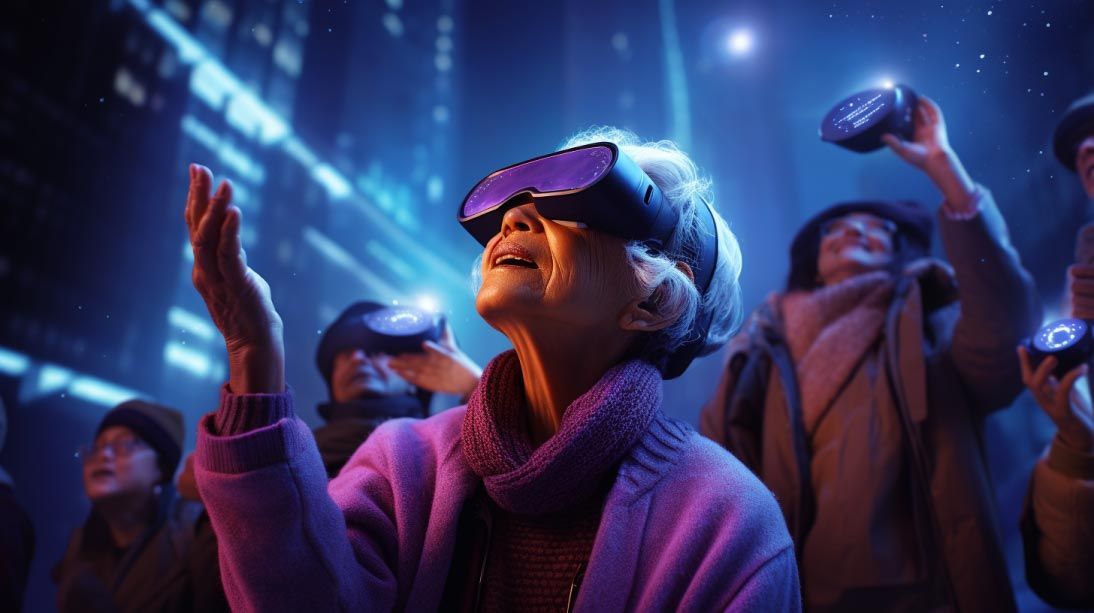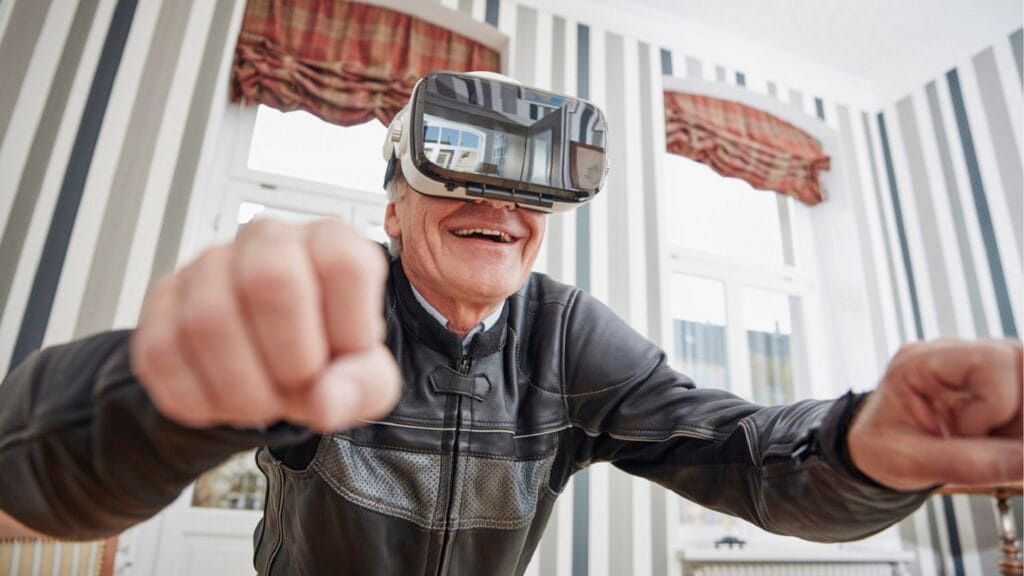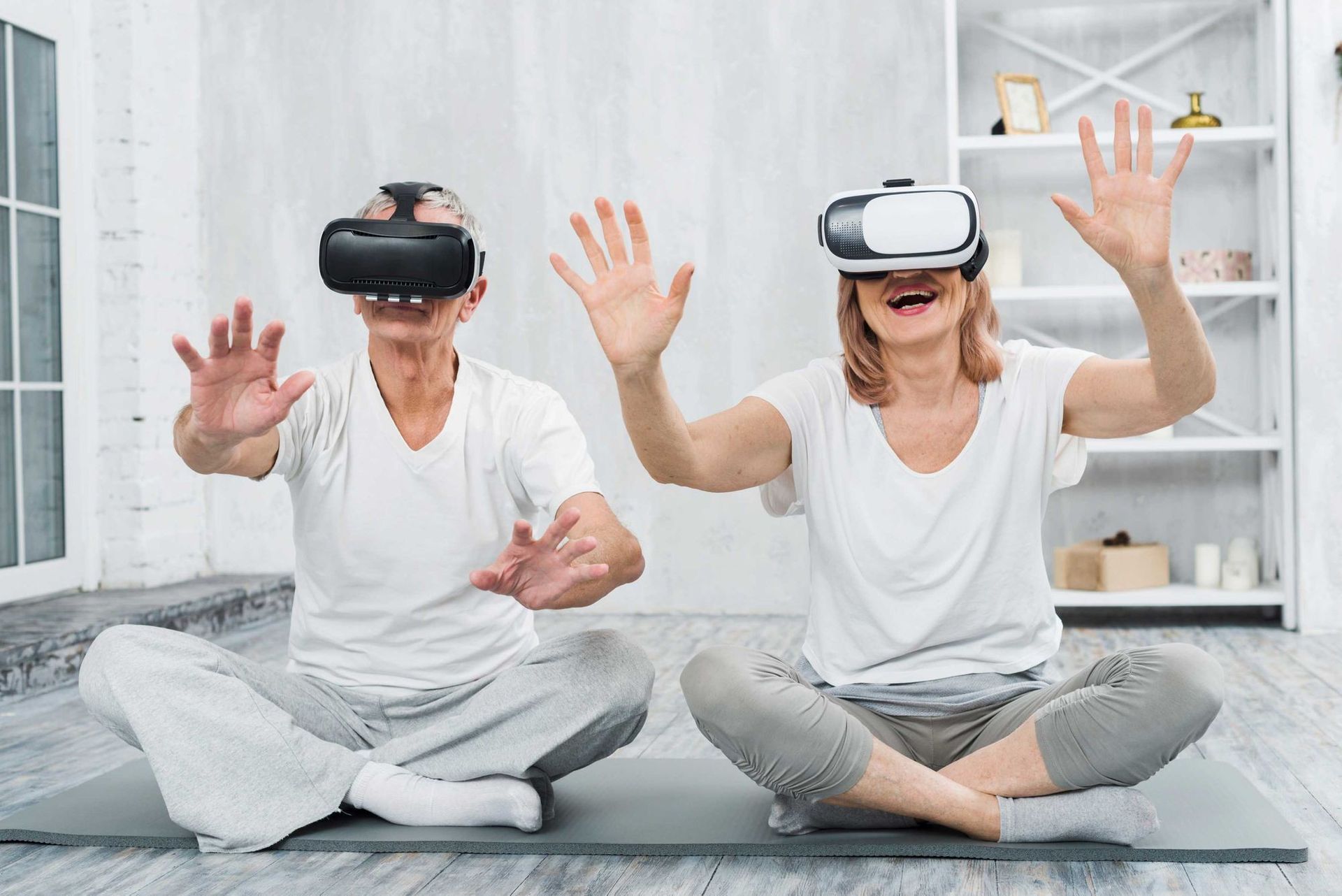
We are in the Augmented Reality age.
The emerging tech is no longer a hyper-niche technology being built by and for developers and industry, exclusively.
Instead, its accessibility has been growing, demographic by demographic, to the point where use cases have been on a constantly expanding trajectory.
As such, we wanted to focus this week on one particular demographic that has been the beneficiary of new use cases.
Let's dive into a discussion about different ways that Augmented Reality has been helping the senior class.

Seniors and Augmented Reality: Cognitive Stimulation and Mental Fitness
- Interactive games and exercises overlayed on the real world can challenge memory, problem-solving, and spatial reasoning. It's the old theory of gamification. However, with these games, real-world functions like memory and recognition can be strengthened.
- Apps like MindMate provide personalized cognitive training and brain teasers specifically for seniors, keeping the brain sharp.
- Virtual tours and historical reconstructions can stimulate curiosity and engagement with new information and even give people who perhaps have not had the means to visit The Louvre a chance to do so in the late stages of life.
Seniors and Augmented Reality: Improved Mobility and Independence
- AR glasses can display turn-by-turn directions and navigation aids, promoting safe and independent movement.
- Apps can overlay medication reminders, appointments, and important notes onto the real world, reducing confusion and anxiety. This particular benefit has the chance of becoming a top use case, as remembering to take medication requires memory, of course.
- Visual cues and markers can help identify objects and obstacles, improving spatial awareness and preventing falls.

Seniors and Augmented Reality: Enhanced Communication and Social Connection
- AR-powered translation tools can break down language barriers, facilitating communication with caregivers or foreign visitors.
- Apps can connect seniors with family and friends virtually, overcoming physical distance and isolation. As more seniors are set to hit retirement communities, these apps could keep them from feeling lost or forgotten.
- Interactive games and experiences can provide shared activities and social engagement, combating loneliness and boredom.
Seniors and Augmented Reality: Rehabilitation and Pain Management
- AR-guided exercises can improve physical therapy outcomes by providing visual feedback and motivation.
- Distraction apps can overlay soothing environments or games to manage pain during medical procedures.
- AR visualizations can help understand and manage chronic health conditions, promoting self-care and empowerment.

Seniors and Augmented Reality: Creative Expression and Leisure Activities
- AR art tools can let seniors create digital paintings or sculptures overlaid in the real world, fostering creativity and self-expression.
- Virtual tours of museums, galleries, and natural wonders can provide enriching cultural experiences without physical limitations.
- Interactive puzzles, games, and hobbies can offer entertainment and mental stimulation while staying at home.
These are just a few examples, and the potential applications of AR for seniors are constantly evolving. As the technology becomes more accessible and user-friendly, we can expect to see even more benefits in promoting independent living, cognitive health, and social connection for older adults.




